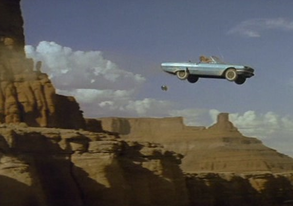 By Charles Harris Are you planning to get stuck into some writing this January? Or getting ready to polish one up for selling? I thought I'd kick off the season with ideas and techniques for using your time in the most useful and productive way. This will the first of a series that will take you through the steps from start to finish, so if you follow them, by the time you've finished you'll have a finished screenplay for film or TV - ready to send out. What kind of writer are you? To start, what kind of writer are you? There are four basic kinds (with variations): - those who plan every detail - those who prefer to jump in and see what happens - those who plan, but like to improvise when they feel like it - and those who plan but continue to change the plan so that it keeps pace with the draft as they progress. Any method is good, if it suits you and your story. However, with film and TV scripts there is much less room for jumping in blind than, say, with novels and plays. Personally, I plan the basic steps but allow myself freedom to discover and improvise as I write. This keeps the freshness, but ensures you don't go so far off piste that the whole story falls apart. Here are the first steps, so you can start on them right now if you want. Then I'll follow up in more detail in future days and weeks. By the way, the process that follows is also a great way to work with a well-developed script. It's only too easy to lose your way in a script edit - this method ensures you never lose sight of the essentials even as you polish. 1. Find your seed A good seed will make you interested, fired up, ready to explore. The problem with writing is it's like getting caught in the storm. As the story builds and you're in the middle of the storm you forget where you were planning to go in the first place. Remembering what started you off will help you keep going to the end. Most writers start with ideas that come as a seed, unformed but with the germ of interest. Usually it's an image - a man walking down a railway track in the night, a body lying stabbed in a swimming pool. Sometimes it's a character they want to explore. Who is it? What does she want? What does she need? For Harold Pinter, his seed was often a line of dialogue. Who's speaking? What will they say next? Start working on this now. Ask yourself what first excited you about this story idea. Whatever it is, locate it, write it down and begin to brainstorm. Jot down any thoughts that grow from your seed - images, places, characters, feelings, events... Write them in whatever form you like - in lists, on separate scraps or in a diagram connecting your thoughts like the branches of a tree. As you do, see what ideas begin to come. 2. Create your pitch or one-sentence log-line For the second step, we'll be focusing that core idea into a pitch that gets me fired up. I never start writing anything unless I have a strong one-sentence pitch that has that crucial spark. After all, the first person I have to sell the idea to is myself. 3. Plan the treatment or outline Later in the series, I'll talk about developing a route-map for the journey you're about to undertake. The better you make this, the more you can relax and trust where you're going. 4. Write the draft First drafts are best written fast. I'll be looking at how best to organise to do this, so that you don't get hung up on distractions and details. 5. Edit the draft Most writers make the mistake of trying to edit everything at once. I believe that the best way to eat a large sausage is one slice at a time. So in the final articles I'll be taking you through the steps from big picture to tiny detail in seven separate edits. Ready, Go, Steady Are you ready for the journey? Or maybe already in the middle of one and can do with some help and reassurance. Most people wait till they have every single detail perfect... and never start! Don't wait till you have everything perfect - the best place to start is now. Step #2 - the premise and pitch CHARLES HARRIS Charles Harris is an experienced award-winning writer-director for cinema and TV. His first professional script was optioned to be developed by major agents CAA in Hollywood and he has since worked with top names in the industry from James Stewart to Alexei Sayle. He created the first Pitching Thursday for London Screenwriters' Festival, has sat on Bafta awards juries, lectured at universities, film schools and international film festivals and teaches selling and pitching to writers, directors and producers across Europe. His new book Teach Yourself: Complete Writing Course is recommended reading on MA courses.
3 Comments
23/1/2016 05:58:52 pm
For the next article in the series - 2. The Pitch - go to http://www.euroscript.co.uk/blog/12-steps-to-your-next-script-2-the-pitch
Reply
18/5/2023 03:39:22 am
What are effective brainstorming techniques writers can use to develop their initial ideas, and how can they capture and organize these ideas in a way that helps them grow and expand their story concept?
Reply
19/5/2023 06:05:12 pm
Hi Ilmu
Reply
Leave a Reply. |
BLOGTHE ONLY PLACE TO TALK ABOUT THE CRAFT OF SCRIPTWRITING.
|
Privacy Policy © Euroscript Limited 2020

 RSS Feed
RSS Feed


